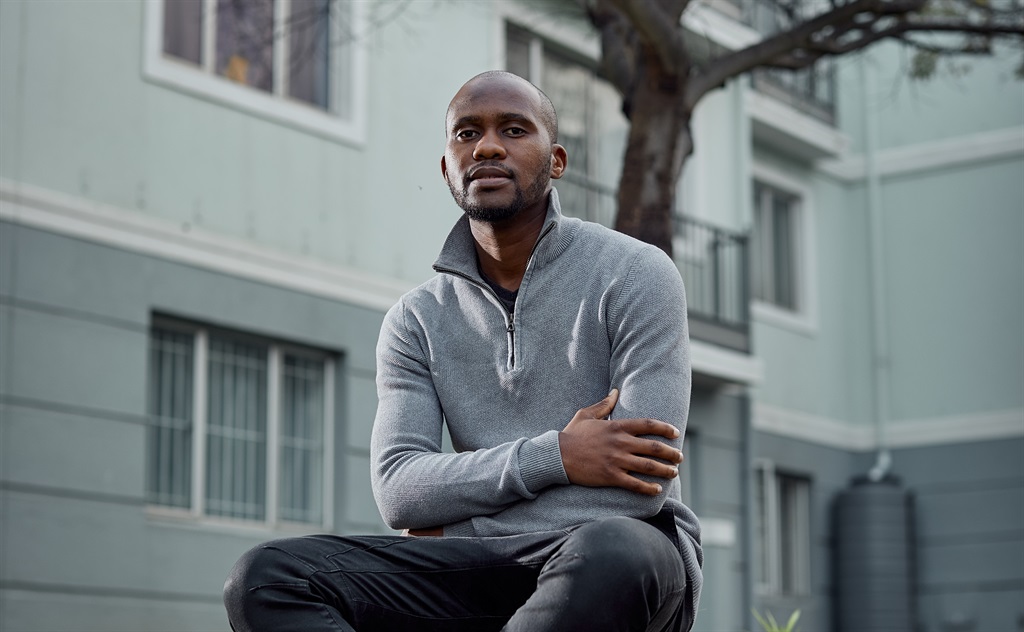
Big data administrator Molefi is 32 years old and has the goal of financial independence by the age of 45. While this is a goal many people aspire to, it means different things to different people.
Molefi wants to have enough money to start his own business. This would require enough capital to provide him with sufficient income to cover expenses for a year and some start-up capital. He has identified other short-term goals. This means he needs a money road map in order to achieve all his financial goals.
His Absa adviser, Mcebisi Ndaba, has helped Molefi put together a structured plan based on his financial goals and resources. This included fine-tuning his budget to find additional funds to invest.
Financial adviser Ndaba calculated how much Molefi would need to save for each goal and identified the appropriate investment product. For short-term goals of less than five years it would be more appropriate to invest in a money market fund or income fund. These are lower risk and typically earn interest.
For his long-term goal of financial independence, he needs to invest in assets that can grow faster than inflation. As he has a longer time horizon, he can afford to take some risks and invest in a portfolio that has exposure to shares both locally and internationally. This can be done through a unit trust or exchange-traded fund, for example.
MOLEFI’S INVESTMENT PLAN
Molefi is fortunate that he has no debt, having settled his credit card and car finance accounts. This means he has more disposable income available to invest towards his goals.
House deposit fund: Molefi will commit R7 000 a month to build a deposit. In three years’ time, he would have R280 000, assuming an 8% interest rate. This, combined with his existing investments, will help him reach his goal of R500 000 for a deposit and the transaction costs of buying a home.
Wedding fund: The goal is to have R50 000 by 2027. By saving R1 000 a month in a high-interest account, Molefi will reach the goal within four years.
Business venture fund: When Molefi’s short-term goals are achieved, he will have the additional funds to put towards his business venture. Once he starts to invest R7 000 a month, within ten years he should have R1.5 million. This assumes he invests in a high-equity unit trust or exchange-traded fund that provides an average return over the period of 10% per annum.
READ: Personal finance: How to stop the dreaded debt cycle
Molefi will use the tax benefits of investing via a tax-free savings account (TFSA) into unit trusts or exchange-traded funds. He is limited to R3 000 a month in a TFSA, but at least this portion of his funds will grow tax-free.
Retirement: Although Molefi hopes to build a business that he will sell one day, it is important to have a retirement fund he knows he can bank on. By having such a fund, he can afford to take bigger risks related to building his own business, because he knows he still has his retirement nest egg if things go wrong. Molefi is making contributions to a retirement annuity that also provides him with a tax deduction on his current income.
READ: Money Makeover: Success isn't big steps, it is small steps taken now
For some people, financial independence means having enough capital to provide an income that covers their expenses. This is the goal behind the financially independent retire early, or FIRE, movement.
For example, R1 million would provide a sustainable income of R40 000 a year or R3 400 a month. If your expenses are R25 000 a month (R300 000 a year), you would then need R7.5 million.
R25 000 x 12 = R300 000, divide by 0.04 = R7.5 million
How much must you save to reach that?
. If you save an amount equal to 20% of your monthly expenses, then it will take you about 35 years;
. If you save an amount equal to 30% of your monthly expenses, then it will take you about 30 years; and
. If you save an amount equal to 50% of your monthly expenses, it will take you 22 years.
The key to reach this goal is to keep your expenses growing at a lower rate than your salary increases.
This will give you more money to put towards your financial freedom, but, at the same time, keep the required financial freedom number as low as possible.
Remember, financial freedom is not just about how much money you have, it’s about how much money you spend.
JOHAN: WHEN RETIREMENT FUND IS NOT ENOUGH
Like almost all South Africans, soon-to-be retiree Johan is behind on his retirement funding. He will be turning 65 in seven years’ time, which does not leave a lot of time to get his finances in order.
His priority is to settle his debt; one does not want the liability of debt repayments once you enter retirement on a limited income. This will be achieved through his debt counselling process and Johan will be debt-free in five years’ time, before he retires.
Johan is increasing his company pension contribution from 12.5% to 15%. One of Johan’s retirement annuities will be maturing in 2025, but, rather than cashing it in, he will continue to contribute to a retirement annuity to boost his retirement outcome. It is important to note that, even if you have a retirement annuity that is set to mature, you can extend the investment and continue to contribute until you need the funds for retirement income. This has the added benefit of providing a tax saving from your current income.
In addition to increasing his retirement provision, Johan has taken out an endowment policy that will mature in seven year’s time, which he can use as a lump sum to boost his retirement.
PLANNING PAST 65
Despite these additional measures, Johan would still find it difficult to receive enough income from his retirement funds to meet all his living expenses from the age of 65. Rather than going into full retirement, Johan needs to consider a transition period in which he could consult or do part-time work until the age of 70. This is something he can plan for and create the necessary contacts and networks. For many people, this could be an opportunity to turn a hobby into income generation.
By leaving the investments to grow for an extra five years, he would have more capital available to convert into an income and fewer years to fund in retirement. This would boost his overall retirement income.
READ: Absa Money Makeover: The link between mental and financial wellness
The amount you require for retirement is dependent on your retirement income needs.
Assuming a retirement age of 65, it is not advisable to draw down more than 5% of your capital each year.
This would ensure that you have sufficient capital to provide an income for 33 years in retirement.
While it is always a good idea to do a proper retirement analysis with a qualified financial expert, you can use a quick rule of thumb to assess your current retirement plan.
The rule of thumb is that, in order to have a retirement income equal to 75% of your final salary, this is how much you need to have saved:
City Press will follow the candidates’ progress on the first and third week of each month, as well as online on the Money Makeover page:
. https://media24.shorthandstories.com/moneymakeover/
You can follow the story on social media #CPMoneyMakeover
. Facebook: @CPMoneyMakeover
. Twitter: @CPMoneyMakeover




 Publications
Publications
 Partners
Partners











